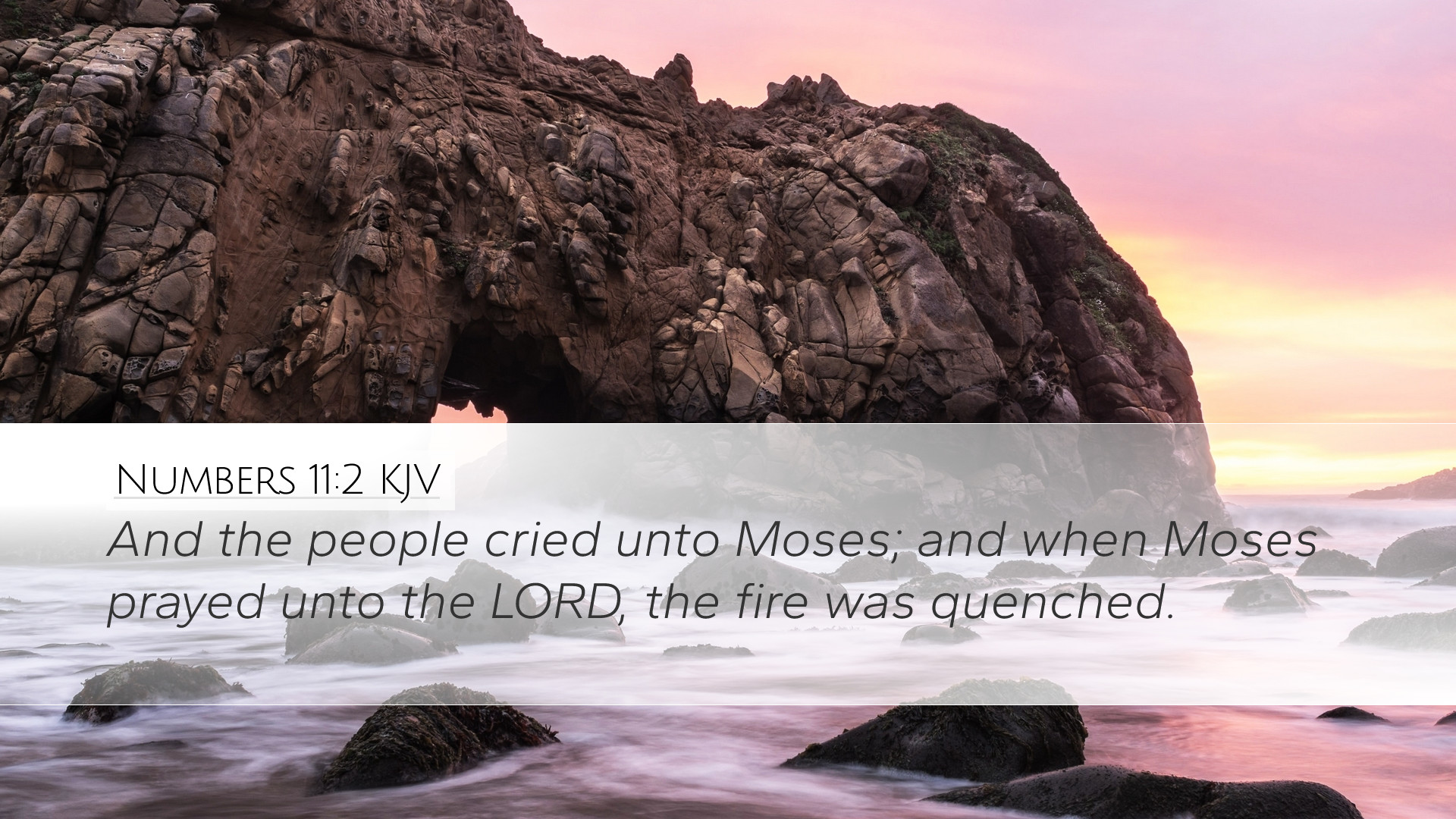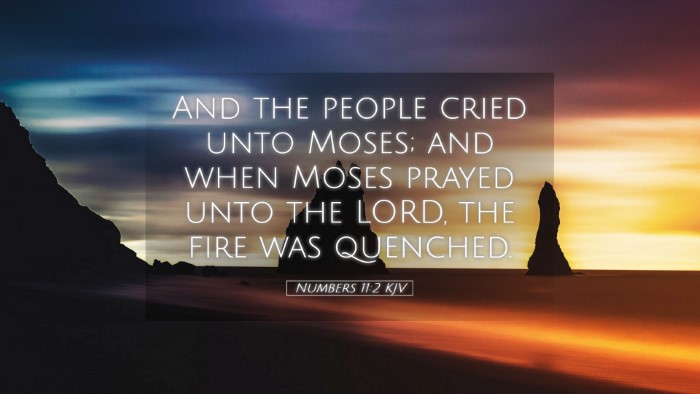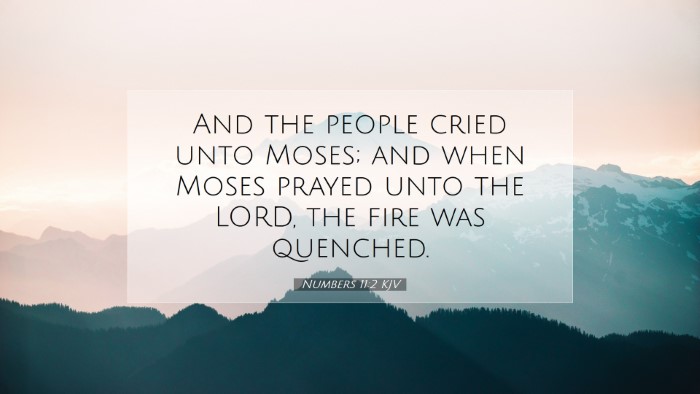Commentary on Numbers 11:2
Verse: "And the people cried unto Moses; and when Moses prayed unto the LORD, the fire was quenched."
Introduction
The passage in Numbers 11:2 presents a significant moment in the narrative of Israel's journey in the wilderness. As they complain, we see the dynamics of leadership under Moses, the people's rebellion, and God's response. This commentary synthesizes insights from Matthew Henry, Albert Barnes, and Adam Clarke, providing a comprehensive view that can be valuable for pastors, students, theologians, and Bible scholars.
The Context of Numbers 11
Before analyzing verse 2, it is essential to consider the surrounding context. The Israelites, having been liberated from Egyptian bondage, are now faced with hardships in the wilderness. Their complaints arise not from absence of provision, as God has granted them manna, but from a sense of dissatisfaction and longing for the comforts of Egypt. The chapter establishes a pattern of discontentment that runs throughout their journey.
Complaints and Consequences
Leaders like Moses are burdened by the people's constant grumbling against the provisions of God. The passage reveals a series of complaints that evoke divine judgment—this point is highlighted by Matthew Henry, who describes the fire as a means of divine retribution, demonstrating God's displeasure with the Israelite's ingratitude.
Analysis of Numbers 11:2
The Cry of the People
The phrase "the people cried unto Moses" indicates both a physical and spiritual desperation. Albert Barnes notes that their cry is not just a call for help; it signifies a deeper reflection of their heart's condition—one that reveals their disconnect from faith and their historical experiences of God's providence.
Moses as Intercessor
Moses' role as intercessor is paramount in this verse. When he "prayed unto the LORD," it highlights the mediator role that Moses plays between God and the people. Adam Clarke emphasizes that despite their rebellion, Moses' advocacy shows the heart of a true leader, one who seeks to reconcile and present the needs of the people before God.
Divine Response: The Fire Quenched
The "fire was quenched" is a powerful statement of God's mercy. While the punishment was justly deserved, it was through Moses' prayer that God relented. Here, we see a connection to the New Testament theme of intercession found in Christ. The grace shown in quenching the fire serves as a reminder that even amidst judgment, God's mercy prevails. This notion is echoed by Henry and Barnes as they discuss the dual nature of God as both just and loving.
Theological Reflections
Understanding God's Holiness and Compassion
The fire symbolizes God's holiness and the resultant consequences of sin. The quenching of the fire demonstrates that, although God is just, His ultimate desire is not to destroy but to restore. This dynamic remains central to Christian theology, as highlighted by Clarke, who relates this incident to the need for repentance and the role of prayer in facilitating forgiveness.
The Role of Leadership
Moses serves as an archetype for spiritual leadership. His willingness to cry out to God on behalf of the people demonstrates a profound understanding of communal responsibility. Leaders must engage in prayer, advocating not only for their own needs but for the needs of those they lead. Barnes notes that true spiritual leaders bear the burdens of their people, interceding with humility and sincerity.
Lessons for Today
- The Importance of Prayer: The act of prayer in times of crisis remains essential. Leaders today must be reminded of the power of prayer in addressing communal grievances and seeking divine intervention.
- Addressing Discontent: Discontentment can lead to rebellion, as seen with the Israelites. Believers must cultivate gratitude and remembrance of God's past provisions and steadfastness.
- God’s Mercy in Judgment: This passage captures the essence of divine mercy. Understanding that though we may face God's discipline, His ultimate desire is for redemption should embolden believers to approach Him with humility.
- A Call to Leadership: The weight of leadership is reinforced. Spiritual leaders are called to advocate for their communities and seek God’s will, realizing the potential impact of their intercession.
Conclusion
Numbers 11:2 provides rich material for reflection and teaching. The interplay of the people's outcry, Moses' intercession, and God's merciful response opens avenues for deeper understanding of God's character and the nature of human discontent. Insights from Matthew Henry, Albert Barnes, and Adam Clarke enrich this examination, reminding us of our need for leaders who intercede and a God who listens and responds with grace. This passage remains a timeless reminder of God's sovereign rule and compassionate heart.


